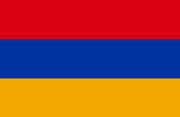 Afrikaas (Afrikaas) Afrikaas (Afrikaas)  Shqiptar (Albanian) Shqiptar (Albanian)  العربية (Arabic) العربية (Arabic)  Հայերեն (Armenian) Հայերեն (Armenian)  Azərbaycan (Azerbaijan) Azərbaycan (Azerbaijan)  Беларускі (Belarusian) Беларускі (Belarusian)  বাঙ্গালী (Bengali) বাঙ্গালী (Bengali)  Bosanski (Bosnian) Bosanski (Bosnian)  Български (Bulgarian) Български (Bulgarian)  Català (Catalan) Català (Catalan)  中文 (Chinese) 中文 (Chinese)  繁體中文 (Chinese Traditional) 繁體中文 (Chinese Traditional)  Kreyòl (Creole) Kreyòl (Creole)  Hrvatski (Croatian) Hrvatski (Croatian)  Česky (Czech) Česky (Czech)  Dansk (Danish) Dansk (Danish)  ދިވެހިބަސް (Dhivehi) ދިވެހިބަސް (Dhivehi) |
 Nederlands (Dutch) Nederlands (Dutch)  English (English) English (English)  Eesti (Estonian) Eesti (Estonian)  Pilipino (Filipino) Pilipino (Filipino)  Suomi (Finnish) Suomi (Finnish)  Français (French) Français (French)  Galego (Galician) Galego (Galician)  ქართული (Georgian) ქართული (Georgian)  Deutsch (German) Deutsch (German)  Ελληνικά (Greek) Ελληνικά (Greek)  Hausa (Hausa) Hausa (Hausa)  עברית (Hebrew) עברית (Hebrew)  हिन्दी (Hindi) हिन्दी (Hindi)  Hmoob Daw (Hmong Daw) Hmoob Daw (Hmong Daw)  Magyar (Hungarian) Magyar (Hungarian)  Icelandic (Icelandic) Icelandic (Icelandic)  Indonesia (Indonesian) Indonesia (Indonesian) |
 Gaeilge (Irish) Gaeilge (Irish)  Italiano (Italian) Italiano (Italian)  日本語 (Japanese) 日本語 (Japanese)  Қазақ (Kazakh) Қазақ (Kazakh)  조선말 (Korean) 조선말 (Korean)  Кыргыз (Kyrgyz) Кыргыз (Kyrgyz)  Latviešu (Latvian) Latviešu (Latvian)  Lietuvių (Lithuanian) Lietuvių (Lithuanian)  Македонски (Macedonian) Македонски (Macedonian)  Melayu (Malay) Melayu (Malay)  Malti (Maltese) Malti (Maltese)  Norsk (Norwegian) Norsk (Norwegian)  فارسی (Persian) فارسی (Persian)  Polski (Polish) Polski (Polish)  Português (Portuguese) Português (Portuguese)  Română (Romanian) Română (Romanian)  Русский (Russian) Русский (Russian) |
 සිංහල (Simhala) සිංහල (Simhala)  Slovenčina (Slovak) Slovenčina (Slovak)  Slovenščina (Slovenian) Slovenščina (Slovenian)  Español (Spanish) Español (Spanish)  Kiswahili (Swahili) Kiswahili (Swahili)  Svenska (Swedish) Svenska (Swedish)  Тоҷикӣ (Tajik) Тоҷикӣ (Tajik)  தமிழ் (Tamil) தமிழ் (Tamil)  ไทย (Thai) ไทย (Thai)  Türkçe (Turkish) Türkçe (Turkish)  Türkmen (Turkmen) Türkmen (Turkmen)  Українська (Ukrainian) Українська (Ukrainian)  اردو (Urdu) اردو (Urdu)  Ўзбек (Uzbek) Ўзбек (Uzbek)  Tiếng Việt (Vietnamese) Tiếng Việt (Vietnamese)  Cymraeg (Welsh) Cymraeg (Welsh)  ייִדיש (Yiddish) ייִדיש (Yiddish) |
Since the installation of application and initialization in the hotel, the user’s application starts collecting information about the pages viewed, the transitions between them, time spent on each page, amount of views of goods or services and many other parameters that are important for you
Thanks to this data, for example, you can see that the same guest looked through laundry service shirts for 10 times, but has not made any order. And you can imagine that this price is too high for the guest. Then offer the guest a discount on this service and look at his actions
Thus, you can learn easily, how to analyze the guests’ actions effectively in your application and manage sales completely on another level